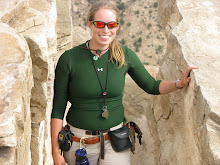Watched the online CBS stream coming out of the local station in Hilo yesterday afternoon, where the station's traffic cameras had been pointed seaward, attempting to capture live video of incoming tsunami waves.
Needless to say, it was a success! The camera looking across Hilo Bay had some of the best views - it was somewhat incredible to watch water quickly drain out of the bay, then back in 3-4 times. Thankfully it wasn't enough to cause much damage (pretty sure some was reported here and there, but minimal - things like docks here and there), but enough that it was easily observable.
The 2004 Sumatra earthquake was unique in that the resulting tsunami was captured in satellite images before it hit the islands. This one managed to supplant that first as we had the time to prepare, get everyone near coastal areas of the island chain calmly evacuated, and someone like me could sit on my couch in Illinois and watch the waves come in at the same time as folks in Hawaii. Scientists also proved that their models, technology, and warning system WORK. Sure, the scientists who developed the tsunami propagation models are itching to refine their programs and datasets, but we know that their model so far is fairly accurate. I believe arrival of the first tsunami was within a half an hour or so of the predicted arrival, and even before then, many people familiar with the prevailing ocean patterns around the islands could tell that there were some funky things happening prior to actual surge arrivals.
The coverage on tape is simply unprecedented. I like to think that earthquake and tsunami science took a huge step forward yesterday.
Also, here's some decent data on all of the major earthquakes since 1900. The deadliest earthquakes list is interesting and strange if not that it's more of a function of building style and location of population centers than earthquake strength. (And, at risk of making a controversial statement, humanity's intelligence with regard to building what we do where we do.)
Subscribe to:
Post Comments (Atom)

No comments:
Post a Comment